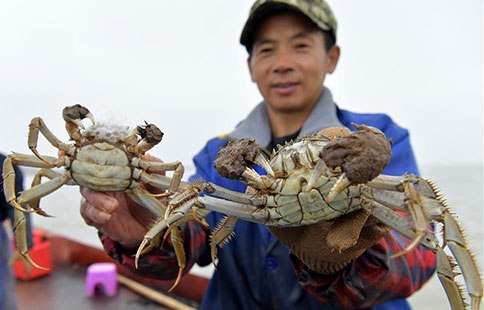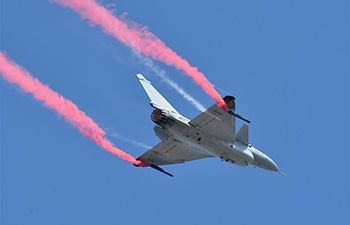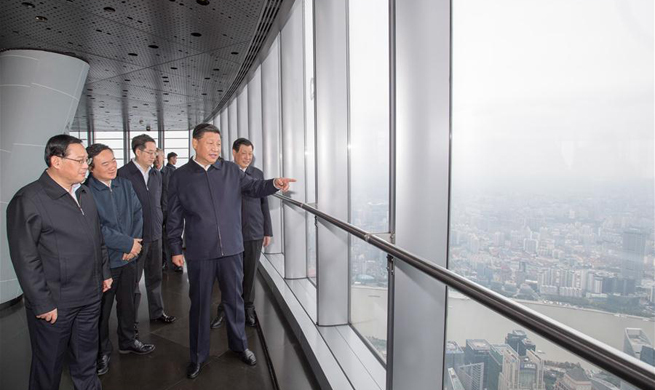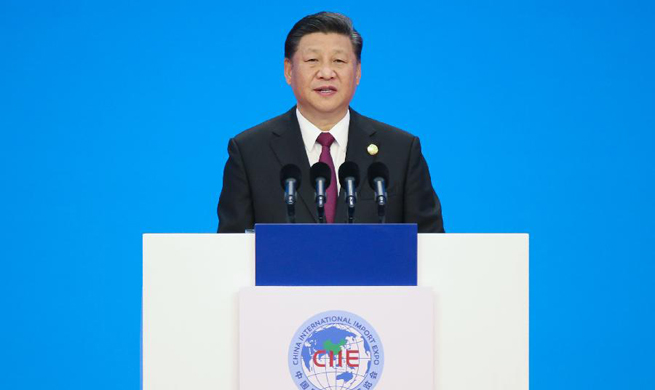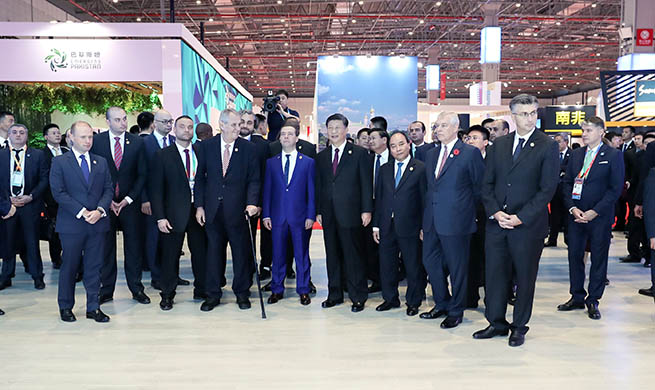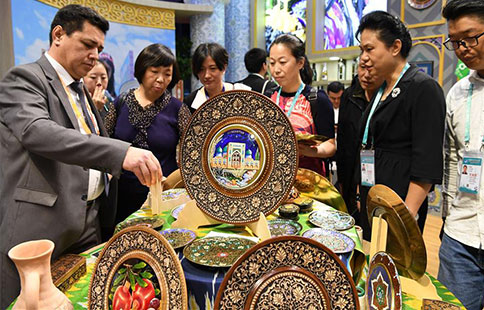HELSINKI, Nov. 7 (Xinhua) -- Ideas for warding off internal and external threats to the current European Union (EU) were the most debated theme at the convention of European center-right parties that began here Wednesday.
The European People's Party (EPP) currently includes 80 parties and partners from 42 countries, and it is the largest group in the EU parliament.
At the Helsinki convention, the EPP will elect on Thursday the party's top candidate for the May 2019 European Election. If the EPP maintains its position as the largest group in the European Parliament, the top candidate will lead the European Commission.
The two candidates for the position are Manfred Weber from Germany and Alexander Stubb from Finland. Commentators have described Weber ideologically conservative, and Stubb liberal.
In a podium debate, Weber said a better connection between Brussels and EU citizens should be formed to create understanding. Stubb said it is no use "blaming people for having voted for populists", but instead politicians should look into the mirror and consider what went wrong in 2008 and 2015.
The years referred to the banking crisis and the start of the refugee influx.
Local commentators said the debate was not a duel, but almost academic. The differences in the value background of the two were seen as Weber underlined his "Christian democratic" background. His campaign video depicted his love of his home area in Bavaria.
Stubb's campaign video focused on his career as prime minister and finance minister and earlier in the European parliament. Currently Stubb is one of the directors of the European Investment Bank.
Weber has been mentioned by European media as a likely winner, while Stubb has given his chances as "thirty percent".
Petri Raivio, EU correspondent of the Finnish national broadcaster Yle, said Stubb hoped that many would disobey their domestic party guidance and vote for him in the secret ballot. Weber had earlier been unwilling to attend a debate with Stubb, and the discussion was added to the schedule fairly late.
The candidacy of Stubb is not a Finnish "national effort". While Stubb has the backing from his old conservative National Coalition Party (NCP), the smaller Finnish Christian Democratic Party is explicitly supporting Weber.
Stubb used to endorse the acceptance of same sex marriage in Finland, which was strongly opposed by the Finnish Christian Democrats. According to media reports, Weber has not taken an explicit stand on the marriage issue.
PLAN TO OUST HUNGARIAN FIDESZ POSTPONED
The EPP delegates on Wednesday approved a resolution about Europe's defense on its values, which was seen as an indirect stand against the policies of Fidesz, the Hungarian member party of the EPP. In the Helsinki resolution, the EPP expresses its commitment to democracy, equality and human rights.
Fidesz has been criticized within the EPP for impairing freedom of speech and the position of civic organizations as well as for politically influencing the selection of judges.
Finnish conservatives are particularly critical of their Hungarian sister party. Top candidate hopeful Stubb has declared "zero tolerance". Petteri Orpo, chairman of the NCP, said on Wednesday Fidesz is "in the wrong party, if the values are not acceptable to it".
Earlier intentions to start a process to oust the Hungarian party did not materialize. Finnish conservatives indicated earlier they would be willing to initiate the process.
The start of the process would require a memorandum representing seven parties from five countries. Orpo said such a grouping is "not now actively being gathered". The resolution and recently started dialogue would be enough at this stage.
CENTRIST PM MEETS EPP HEADS OF GOV'T
Though not part of the EPP convention, Finnish centrist Prime Minister Juha Sipila is scheduled to meet all the seven prime ministers present on Wednesday and Thursday. Sipila described the meetings with the prime ministers as preparation for the Finnish presidency of the EU during the latter half of 2019.
At a press conference on Wednesday, Sipila and German Chancellor Angela Merkel underlined the closeness of the aims of Finland and Germany in the EU.
After a meeting with Austrian Prime Minister Sebastia Kurz, both Sipila and Kurz denied that there was any "mistrust" between Finland and Austria.
Earlier Wednesday, Austrian media reported that the Finnish security police SUPO had this summer excluded the Austrian security organization from the distribution list of a confidential document that had gone to other western European security organizations.




